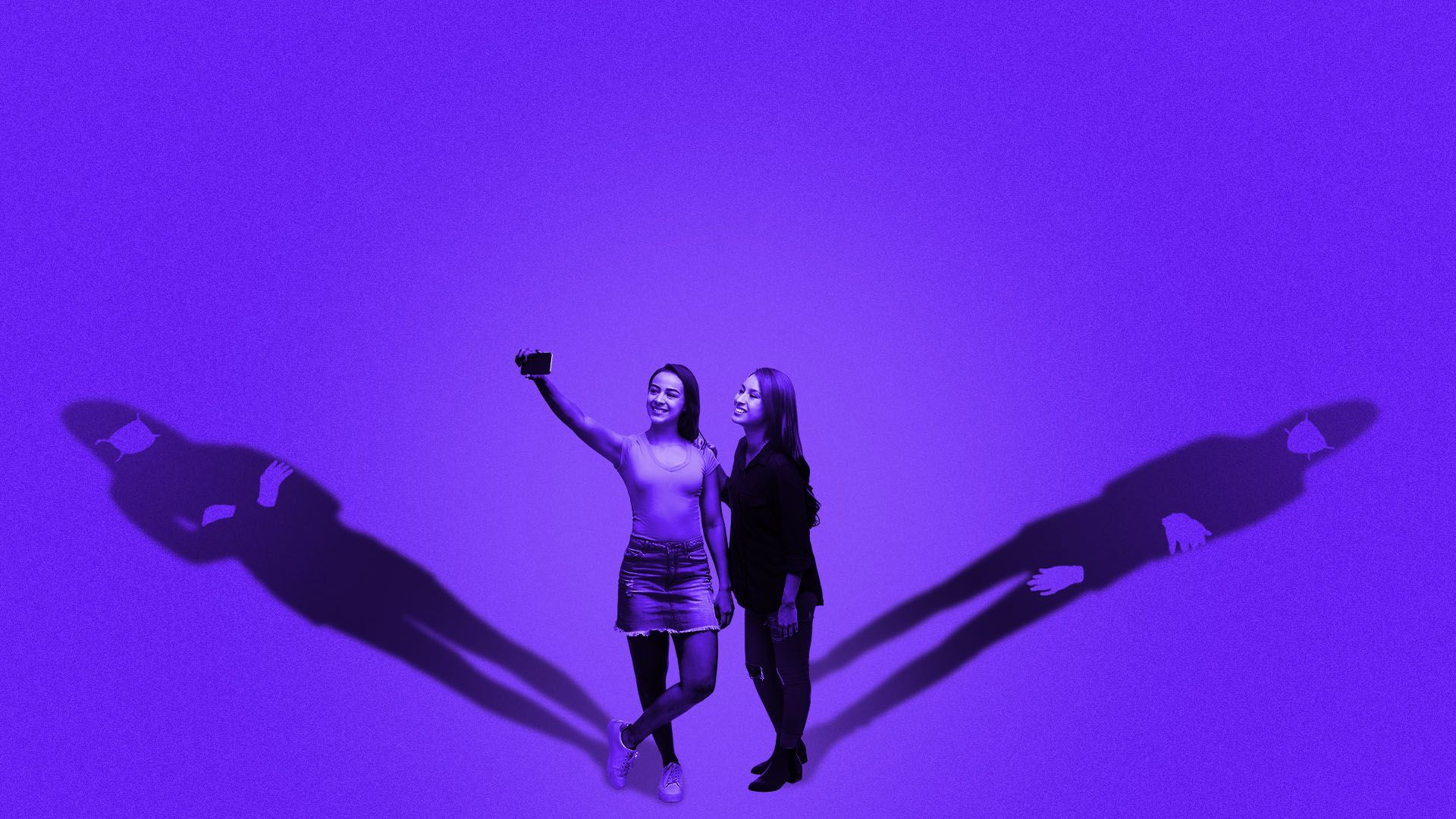The unexpected consequences of the pandemic
Add Axios as your preferred source to
see more of our stories on Google.

Illustration: Sarah Grillo/Axios
We know COVID-19 will fundamentally alter the world, but those changes may not be the ones you expect.
The big picture: While much of the focus has been on the rush to remote work in the early stages of the pandemic, the longer-term consequences of COVID-19 may have more to do with how we keep ourselves healthy than how we work.
We're likely only in the early stages of the pandemic, but that hasn't stopped experts — including yours truly — from opining on how COVID-19 will change the post-disease world.
- But we're almost certainly wrong, as futurist Amy Webb tells me. "Any time a new change is foisted upon us, very quickly there is a bias to thinking that the new present is the future. That is almost universally never the case."
Be smart: Webb is the founder of the Future Today Institute and one of the sharpest people working on forecasting tomorrow. So she was a logical person to ask about what we're getting wrong — and right — about COVID-19's consequences.
Wrong: The idea that remote work is here to stay.
- Webb notes the shift to remote work started around 15 years ago when offices went to an open plan layout — only to find that productivity tanked. "Most societies are not set up to support the daily productivity tasks you need as a remote worker or student," she says.
Right: What will last is the shift to telemedicine and at-home diagnostics, as well as drone delivery.
- Webb notes that telemedicine has always been held back by a federalized system that largely regulates doctors state by state. But emergency measures around the pandemic have led to the loosening of those regulations, opening the door wider for telemedicine.
- The same conditions have created an opportunity for at-home diagnostics, as patients seek to test themselves for coronavirus and other conditions. Webb expects companies like Amazon to push devices that can monitor your health directly. "Imagine having a smart toilet that can do urinalysis and check for problems like excess glucose at home," she says.
- The pandemic is already snarling supply chains and the problem is only likely to get worse. But with streets empty because of social distancing, Webb sees this as the perfect moment for companies to test out autonomous drones for delivering vital goods to the quarantined. "This is the best time for the FAA to begin allowing drone-based deliveries to happen," she says.
The bottom line: The post-pandemic world will be one where more things come to us, whether via a screen or via a robot.
Go deeper: How the coronavirus will shape the future
